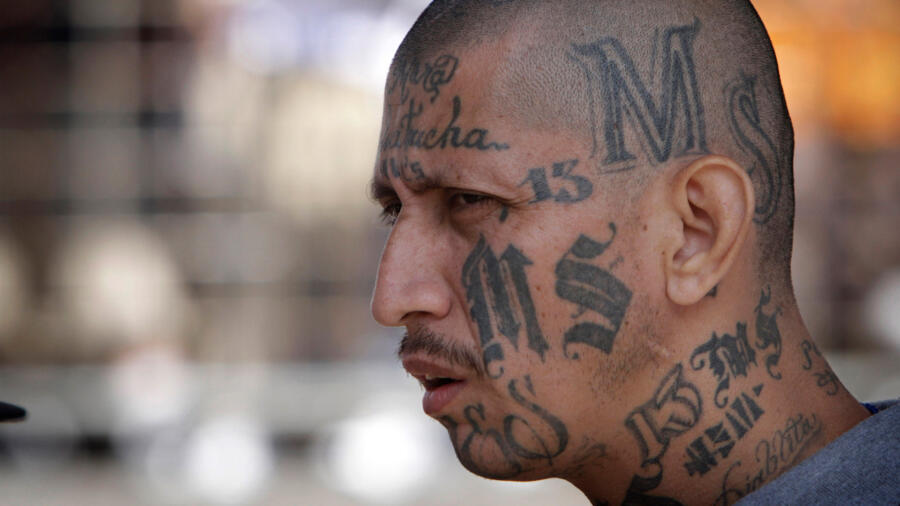Back in the 1970s, the village of Patchogue in Long Island, New York was safe enough to stroll around in after dusk, said resident Josephine Castagnole, 67 years old. But these days, the Burlington Coat Factory employee says that danger defines the village of 11,700 inhabitants.
“We’re shoplifted on a daily basis,” Castagnole says. “The police don’t do anything.”
On first impression, it’s hard to believe. Even today, Patchogue’s center looks positively idyllic: businesses signposted with carved-wood-and-gold lettering, a low-rise skyline punctuated by the oxidized copper spire of an 18th-century red-brick church. It’s a village with gazebos and a public garden; with a frozen yogurt shop and a gourmet Japanese restaurant; with a single-platform train station, where there’s a reading room with free books to peruse, so passengers can skim The Boxcar Children or the Bible while waiting for a train.
But the hamlet’s cheerful exterior belies a shockingly violent struggle: one where Suffolk County law enforcement are trying to beat back the expansion of MS-13, a Salvadoran street gang, even as villagers struggle with the scars left from when a group of local high schoolers murdered a Latino immigrant not 10 years ago.
In the early morning hours of August 19, Patchogue police ran a coordinated raid on the Cuscatlon Lounge and El Capitan Sports Bar: two dives, both on the outskirts of town. A spokesman for the Suffolk County Police Department said that the bars were raided because they were MS-13 hangouts. Seven patrons were arrested.
According to Adriana Correa, a 30-year-old nail-salon technician who once rented a room above the Cuscatlon Lounge, “It reeked of marijuana. Bad people were coming and going there all the time.”
MS-13 (or “mara salvatrucha”) has so plagued Long Island that President Trump called the group out by name in a speech in July 2017, saying that his administration would be “liberating our American towns.”
According to the Suffolk County Police Department, MS-13 has been responsible for 17 murders in the county since January 2016, including those of two East Patchogue residents: Bellport High School students Justin Llivicura, 16, and Jorge Tigre, 18. Both were found dead in Central Islip in April, mutilated and dismembered by machetes—victims of an MS-13 quadruple homicide.
It’s believed that MS-13 originated in 1980s southern California, when a wave of Salvadorans came to the United States as refugees fleeing civil war. After the war ended, many returned to El Salvador but continued with organized crime, using threat of violence to extort money from local business owners. But those claiming the MS-13 banner in America are far more disjointed and largely commit crime without economic incentive, according to Charles Katz, director of the Center for Violence Prevention and Community Safety at Arizona State University and a preeminent scholar on the group.
“There’s no financial reason for it,” Katz says. “You’re in a fight with another group. You’re expressing concerns that you’re being disrespected. It’s expressive violence.”
Katz posits that because of comparatively weak law enforcement in El Salvador, some Salvadoran immigrants who were in MS-13 there feel compelled to operate similarly in the States.
“They think they can get away with the same violence, and they’re surprised when the same level of respect is not communicated” to them as it was back in El Salvador.
Instead, he says, “they get picked up.”
But not always before inflicting terrible pain. Few can attest to that like Angel Zhicay, an Ecuadorian native who moved to Patchogue 30 years ago and is the shop-keep for Express Amazonas, a bodega in the village center.
Zhicay, 54 years old, was victim Justin Llivicura’s uncle. He says his nephew was intelligent and ambitious and wanted to be a mechanic. “He was always playing with cars,” Zhicay said. “He had a lot of good ideas.”
Outraged by Justin’s death at the hands of MS-13, Zhicay prays that the police will stamp out the gang and restore order to the area.
“They need to destroy them,” says Zhicay. “In five or 10 years, it’s going to be awful.”
Still, he fears what might happen if the community paints with too broad a brush. That’s what happened in 2008, when a group of high school students went out “Mexican hopping,” looking for Latinos to mug after a night of drinking. They ended up stabbing and killing Marcelo Lucero, a 37-year-old Ecuadorean who had been living in Patchogue for more than a decade. The murder was prosecuted as a hate crime and led to a Department of Justice investigation into the Suffolk County Police Department.
Zhicay says he and Lucero were friends, and that on weekends they would play volleyball in each other’s backyards. According to him, Lucero’s murder was far less out-of-the-blue.
“We knew we had real tough problems with racism here. These white gangs of kids, they’d come throwing trash, telling us to go back to our country. I’d have to walk customers to their cars. I’d call the cops every day. After Marcelo, the cops started paying attention.”
Zhicay says that overt racism in the community diminished following the death. Now, even as he mourns his nephew’s death, Zhicay worries that MS-13 might cause the anti-Latino hostility of 2008 to return.
He’s not alone. With the crackdown of undocumented immigration a focal point of the Trump administration, some like the New York Civil Liberties Union worry that MS-13 could be used as a Trojan horse to round up and deport nonviolent offenders.
Meanwhile, others worry that gang violence will become commonplace. According to 18-year-old recent Bellport High School graduate Louis Kenny, MS-13 has proliferated.
“In Suffolk County, gang stuff is everywhere,” Kenny says. “Everyone sees it as something cool.” According to Kenny, the gang is less prevalent at Bellport High than it was in the town of Brentwood, where he also lived for a year: There, he says, he knew who was in MS-13 by the black bandanas they wore around their left hands. In Patchogue he says the issue is far less pronounced.
David Kennedy, executive director of the Greater Patchogue Chamber of Commerce, agrees. “Our community in the last five to 10 years has gone through a pretty major renaissance,” Kennedy says. “We co-mingle very well. Patchogue is blessed.”
Related Features:
Sgt Sticks of ‘Live PD’ on the Real Story Behind Ganglife in Tulsa
Trinitarios: Everything You Need to Know About NYC’s Machete-Wielding Gang


